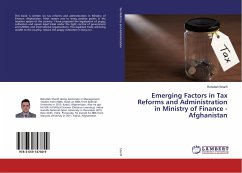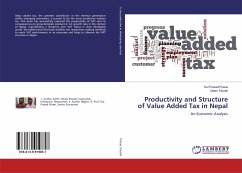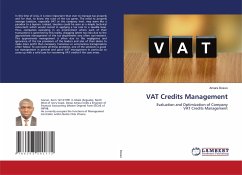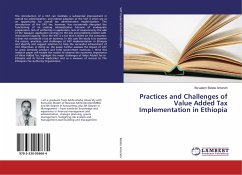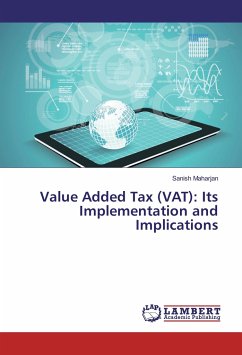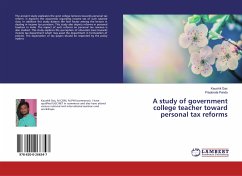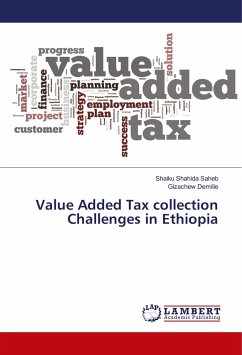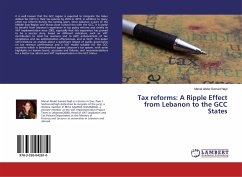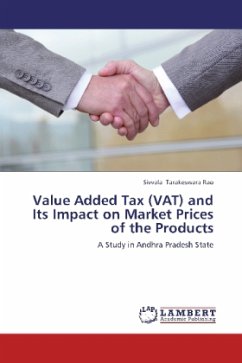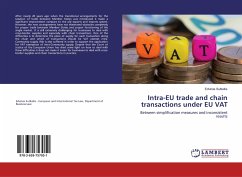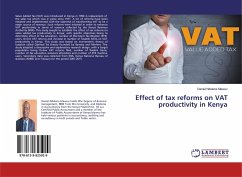
Effect of tax reforms on VAT productivity in Kenya
Versandkostenfrei!
Versandfertig in 6-10 Tagen
27,99 €
inkl. MwSt.

PAYBACK Punkte
14 °P sammeln!
Value Added Tax (VAT) was introduced in Kenya in 1990 in replacement of the sales tax which was in place since 1971. A lot of reforms have been initiated and implemented with the objective of transforming VAT to be a major source of revenue. Such reforms were initiated in order to enhance VAT productivity in terms of revenue collected by the Kenya Revenue Authority (KRA). This study sought to establish the effect of tax reforms on value added tax productivity in Kenya; with specific objectives being to determine effect of Tax education, number of Electronic Tax Register (ETR) users, Online VAT...
Value Added Tax (VAT) was introduced in Kenya in 1990 in replacement of the sales tax which was in place since 1971. A lot of reforms have been initiated and implemented with the objective of transforming VAT to be a major source of revenue. Such reforms were initiated in order to enhance VAT productivity in terms of revenue collected by the Kenya Revenue Authority (KRA). This study sought to establish the effect of tax reforms on value added tax productivity in Kenya; with specific objectives being to determine effect of Tax education, number of Electronic Tax Register (ETR) users, Online VAT returns and increase in number of Taxable Items on VAT productivity in Kenya. This study was based on econometric theory of taxation called Optimal Tax theory founded by Ramsey and Mirrlees. The study adopted a descriptive and explanatory research design, with a target population being Online VAT returns filed, number of Taxable Items, number of Tax education seminars attendees and number of ETR machine users. Secondary data was collected from KRA, Kenya National Bureau of statistics (KNBS) and Treasury for the period 2007-2015.



